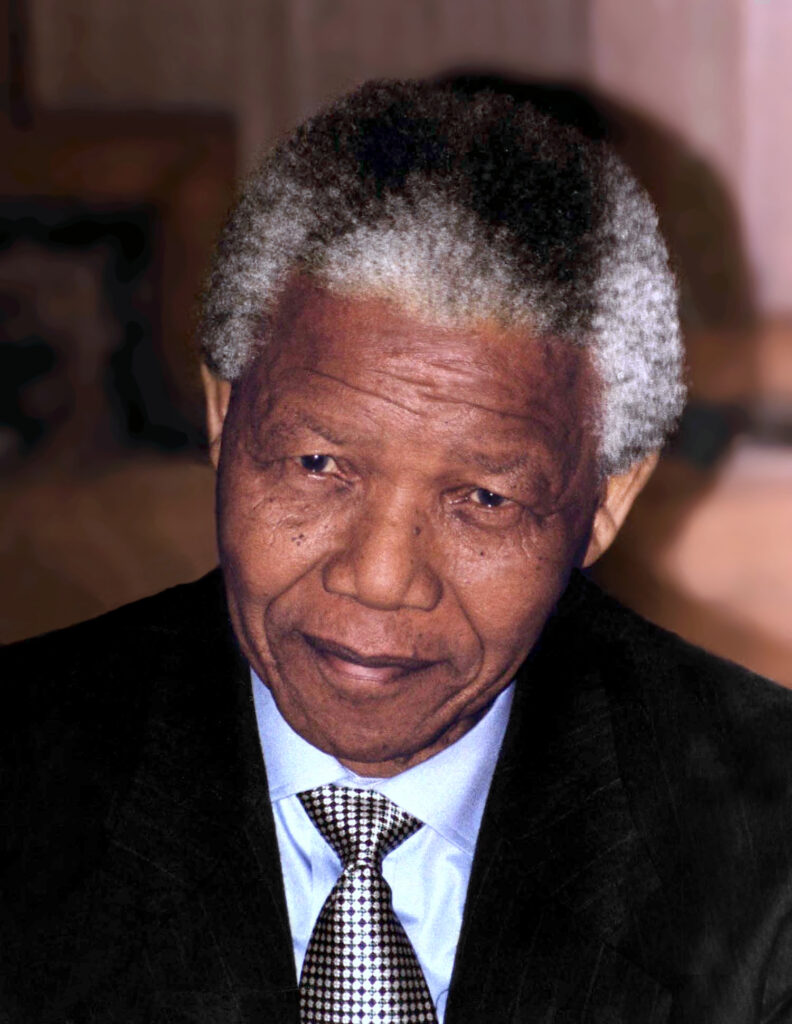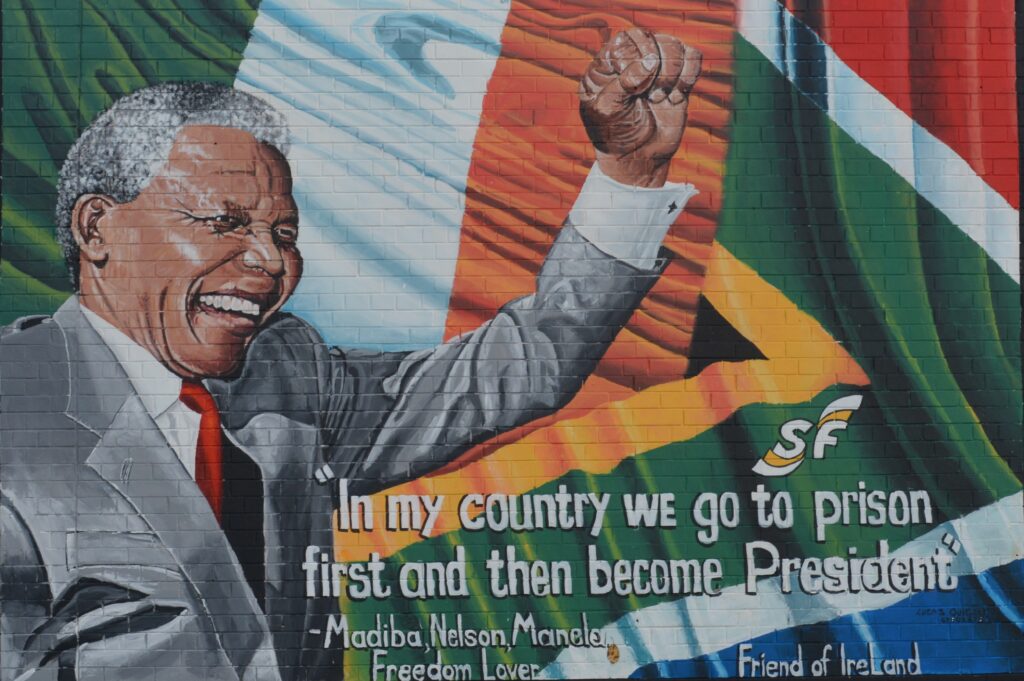On July 18th every year, people around the world unite to commemorate the life and achievements of one of history’s most inspirational figures, Nelson Mandela. Mandela Day serves as a global call to action, urging individuals to dedicate their time and efforts to making a positive impact in their communities. This annual celebration not only honors Mandela’s extraordinary legacy but also aims to promote social justice, equality, and human rights.
Remembering Nelson Mandela
Nelson Mandela, affectionately known as Madiba, was a South African anti-apartheid revolutionary, philanthropist, and political leader who served as the country’s first democratically elected president from 1994 to 1999. Throughout his life, Mandela fought tirelessly against racial discrimination, inequality, and oppression. He dedicated his efforts to fostering reconciliation, promoting peace, and advocating for human rights.
Mandela’s unwavering commitment to justice and equality was recognized globally, earning him numerous accolades, including the Nobel Peace Prize in 1993. His values and leadership continue to inspire millions, reminding us of the power of compassion, forgiveness, and perseverance.
The Birth of Mandela Day
In 2008, during Mandela’s 90th birthday celebration in London’s Hyde Park, a call was made by his wife, Graça Machel, for the world to dedicate time to public service. The Nelson Mandela Foundation embraced this idea, recognizing the immense impact that individuals, communities, and organizations could have if they followed Mandela’s example.
The following year, on July 18, 2009, the inaugural Mandela Day was officially launched by the Nelson Mandela Foundation. The date held special significance as it marked Nelson Mandela’s birthday. Mandela Day was established as an annual global celebration of Nelson Mandela’s life and a call to action for individuals to dedicate their time to public service.
The 67-Minute Challenge
A key aspect of Mandela Day is the 67-Minute Challenge. The number 67 represents the years Nelson Mandela spent fighting for human rights and social justice. In commemoration of his extraordinary commitment, individuals are encouraged to give 67 minutes of their time to make a positive impact in their communities. This symbolic gesture emphasizes the notion that every person has the ability to contribute and create change, no matter how small their actions may seem.
Recognition by the United Nations
The significance of Mandela Day was further amplified when the United Nations General Assembly declared July 18th as Nelson Mandela International Day in 2009. This recognition by the UN emphasized the global importance of Mandela’s legacy and provided a platform for collective action towards the achievement of the Sustainable Development Goals (SDGs). Mandela Day serves as a catalyst for promoting values such as peace, reconciliation, social justice, and human rights, which are integral to the UN’s mission.
Significance

The significance of Mandela Day extends far beyond a simple commemoration of Nelson Mandela’s life. It serves as a powerful reminder of the enduring impact one individual can have in shaping the course of history. Mandela’s remarkable journey from prisoner to president, his unwavering commitment to justice and reconciliation, and his ability to inspire millions with his message of hope make Mandela Day a truly significant global event. Here are some key aspects that highlight the significance of Mandela Day:
- Honoring a Human Rights Icon: Mandela Day provides an opportunity for individuals and communities worldwide to pay tribute to Nelson Mandela’s extraordinary contributions to the advancement of human rights, social justice, and equality. It serves as a reminder of his lifelong dedication to fighting against oppression and his unwavering belief in the power of forgiveness and reconciliation.
- Promoting Unity and Reconciliation: Mandela’s legacy is rooted in his ability to bring people together and foster a spirit of unity. Mandela Day encourages individuals from all walks of life, regardless of their backgrounds or circumstances, to stand together and work towards common goals. It serves as a platform for promoting dialogue, understanding, and reconciliation, helping to bridge divides and heal wounds in communities still grappling with the legacies of conflict or inequality.
- Inspiring Active Citizenship: Mandela Day challenges us to move beyond passive admiration and embrace active citizenship. It reminds us that each one of us has the power and responsibility to create positive change in our communities. By devoting just 67 minutes of our time to service, we can collectively make a significant impact and contribute to the betterment of society.
- Encouraging Volunteerism and Philanthropy: Mandela Day highlights the importance of volunteerism and philanthropy as powerful forces for social change. It calls on individuals to engage in acts of selflessness and service, promoting a culture of giving back and supporting those in need. Through volunteering and philanthropic endeavors, people can experience firsthand the transformative power of compassion and empathy.
- Empowering Marginalized Communities: Mandela Day places a particular emphasis on empowering marginalized communities and addressing systemic inequalities. It prompts individuals to take action and support organizations that champion human rights, equality, and social justice. By amplifying the voices of the marginalized, advocating for their rights, and working towards systemic change, we can strive for a more equitable and inclusive society.
- Sustaining Mandela’s Vision: Mandela Day serves as a call to uphold and sustain the values and principles that Mandela embodied throughout his life. It encourages us to continue the work he started, not just on one designated day but as an ongoing commitment. By embracing Mandela’s vision and applying it in our daily lives, we can contribute to building a world guided by justice, equality, and compassion.

Mandela Day holds immense significance as a global celebration of Nelson Mandela’s life, values, and achievements. It reminds us that each person has the potential to make a positive impact and create a more just and equitable world. By actively participating in Mandela Day and carrying its spirit forward throughout the year, we honor Mandela’s legacy and inspire future generations to follow in his footsteps.
References
Frequently Asked Questions
How did Nelson Mandela change the world?
Nelson Mandela, a towering figure in the fight against apartheid, transformed the world through his unwavering commitment to justice, equality, and reconciliation. As a charismatic leader, he inspired millions with his message of non-violence and unity. Spending 27 years in prison for his beliefs, Mandela emerged as a symbol of resilience and perseverance. Upon his release, he played a pivotal role in dismantling apartheid, leading South Africa to its first multiracial democratic elections and becoming its first black president. Mandela’s advocacy for human rights and social justice touched hearts globally, inspiring movements for freedom and equality, and leaving an indelible mark on the world.
What are 5 important facts about Mandela?
1. Anti-Apartheid Activism: Nelson Mandela dedicated his life to fighting against apartheid, a system of racial segregation and discrimination enforced in South Africa. He co-founded the militant group Umkhonto we Sizwe (Spear of the Nation) and led various acts of sabotage against government targets, ultimately resulting in his arrest and imprisonment.
2. Imprisonment and Longest-Serving Political Prisoner: Mandela spent 27 years incarcerated, the majority of which were in the notorious Robben Island prison. Despite the harsh conditions, he remained resolute in his pursuit of justice and became a symbol of the anti-apartheid movement during his time in captivity.
3. Reconciliation and Truth Commission: After his release in 1990, Mandela played a pivotal role in the transition from apartheid to democracy in South Africa. He championed the Truth and Reconciliation Commission, a groundbreaking initiative that aimed to heal the wounds of the past by allowing victims and perpetrators to share their stories in a public forum.
4. First Black President of South Africa: In 1994, Mandela made history by becoming South Africa’s first black president in the country’s first fully democratic elections. He worked tirelessly to dismantle the legacy of apartheid, promoting equality, unity, and reconciliation.
5. Global Humanitarian and Advocate: Mandela’s influence extended far beyond South Africa’s borders. He became a global statesman, advocating for human rights, peace, and social justice worldwide. He received numerous international accolades, including the Nobel Peace Prize in 1993, for his extraordinary efforts in promoting equality and reconciliation.
What did Nelson Mandela do as president?
As the President of South Africa from 1994 to 1999, Nelson Mandela implemented several significant initiatives and policies. Here are some key actions taken by Mandela during his presidency:
1. Reconciliation and Nation Building: Mandela prioritized reconciliation and healing in a deeply divided nation. He established the Truth and Reconciliation Commission (TRC) to investigate human rights violations committed during the apartheid era. The TRC provided a platform for victims and perpetrators to share their stories and seek amnesty, fostering a sense of understanding and promoting national unity.
2. Promoting Equality and Social Justice: Mandela pursued policies aimed at addressing the vast socio-economic inequalities inherited from apartheid. His government implemented measures to improve access to education, healthcare, housing, and basic services for all South Africans, with a particular focus on historically disadvantaged communities.
3. International Diplomacy and Leadership: Mandela played an active role in international affairs, leveraging his status and influence to advocate for human rights, democracy, and peace across the globe. He fostered diplomatic relationships, represented South Africa on the international stage, and helped secure foreign investments to support the country’s development.
4. Economic Reform and Job Creation: Mandela’s government pursued economic policies focused on attracting foreign investment, encouraging entrepreneurship, and promoting job creation. Efforts were made to address the economic exclusion experienced by marginalized communities, with initiatives to empower small businesses and support economic empowerment programs for historically disadvantaged groups.
5. HIV/AIDS Awareness and Treatment: Recognizing the devastating impact of the HIV/AIDS epidemic, Mandela openly acknowledged the crisis and worked to address the stigma surrounding the disease. His government implemented comprehensive HIV/AIDS prevention and treatment programs, raising awareness and providing access to life-saving antiretroviral drugs.
These actions, among others, showcased Mandela’s commitment to democracy, equality, and social justice during his presidency, leaving a lasting impact on South Africa and the world.
What did Nelson Mandela do to end apartheid?
Nelson Mandela played a pivotal role in ending apartheid in South Africa through his unwavering determination and leadership. As a prominent anti-apartheid activist, he used various strategies to dismantle the racist system. Mandela advocated for international sanctions against the apartheid regime, which put pressure on the South African government. He engaged in negotiations with President F.W. de Klerk, leading to the unbanning of anti-apartheid organizations and the release of political prisoners. Mandela’s charisma and vision for a democratic South Africa inspired millions, and he played a central role in the negotiations that resulted in the country’s first multiracial democratic elections in 1994, effectively ending apartheid and paving the way for a new era of equality and reconciliation.
